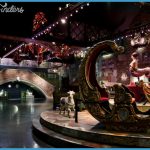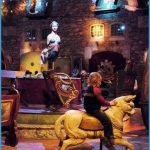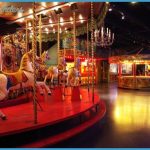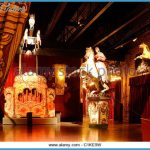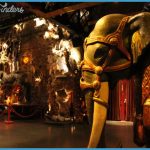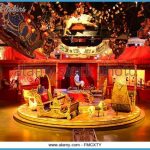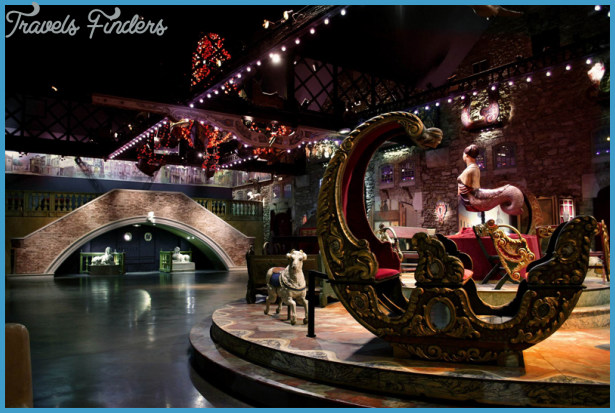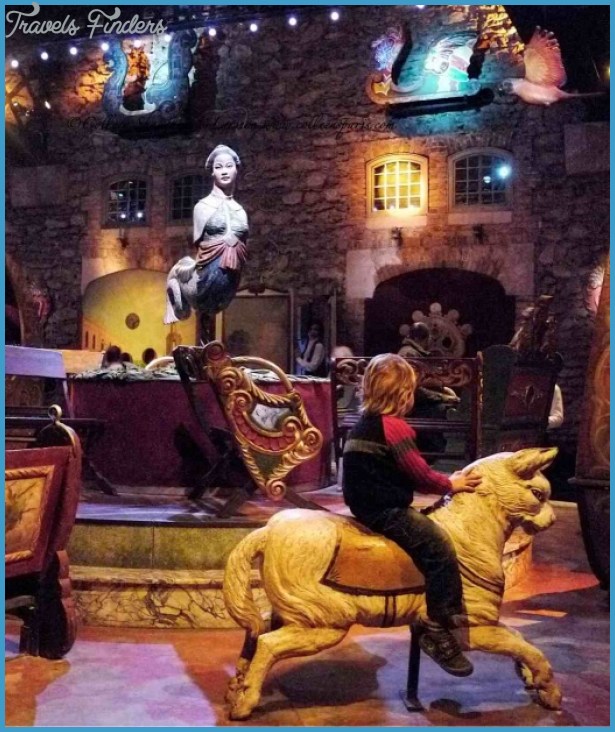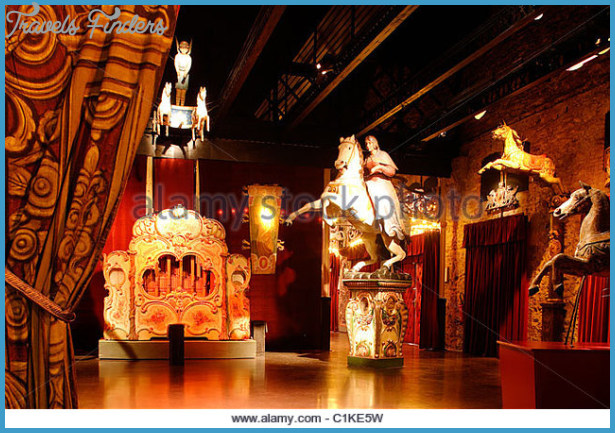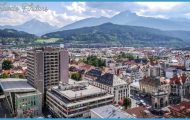In a nutshell: The area called Bercy, located in the eastern part of Paris, was settled some time before the 12th century. It became the world’s largest wine port, sitting on some 43 hectares (a hectare is a bit less than 2.5 acres) and was an exciting, lively area. In 1979 the Paris City Council voted to begin redevelopment of east Paris beginning with an arena that is home to many sports events and concerts. Most of the wine cellars were demolished, but those wine cellars or Pavillons de Bercy left standing remain as the last examples of this type of architecture.
Fast forward to today: I discovered the Museum of Fairground Art, quite a few years ago, when I attended an event there. It was such a delight and a surprise to walk amongst German swings, merry-go-rounds and carousels from another age, with sculpted wooden horses, hundred year-old bicycles and other objects from the past. While these objects may be looked down upon by those in the art and antique world, they are in fact works of art with their beautiful carvings and woodwork (similar to that found in French chateaux), and above all with their links to the activities of human beings, they have cultural as well as aesthetic qualities. This incredible and unique collection is the creation of a man named Jean Paul Favand, an actor and antiques dealer who has been collecting and storing his collection of fairground art for the past 30 years.
This is a great place to take your children or let your own inner child run free. Call or write to Diane to book a tour: Tel : +33 (0)1 43 40 16 15 or diane@pavillons-de-bercy.com
A note of interest:
You can get to the Pavillons de Bercy by taking Metro: METEOR Line 14, (which claims to be the fastest metro in the world) to the Cour Saint Emilion station, a less than 10 minute ride from Madeleine / Opera. By the way, this is a fully automated metro line, so it runs even when there are strikes. Remember to look out for the trees and other vegetation at the Gare de Lyon station.
For more information:
http://www.pavillons-de-bercy.com/EN/background_history-bercy.html

